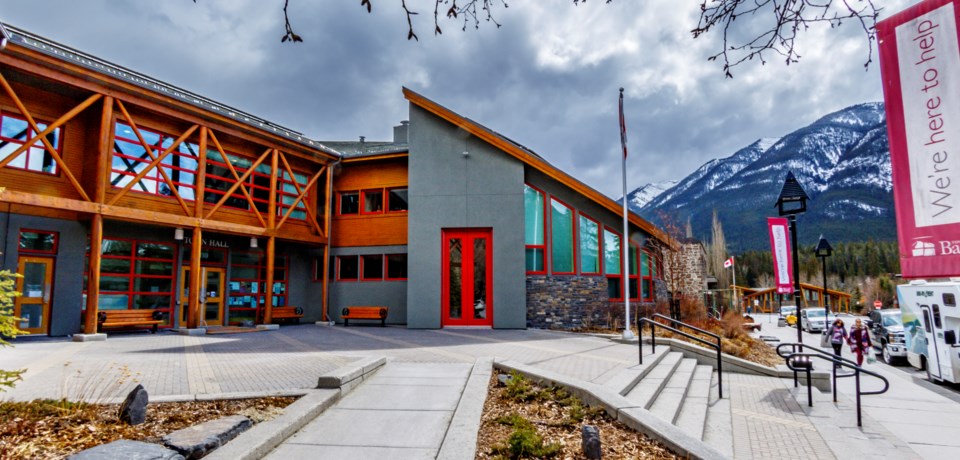BANFF – The Town of Banff looks set to dish up a ban on food scraps and recyclable materials being dumped into municipal garbage bins by commercial establishments.
During a March 14 meeting, the governance and finance committee unanimously recommended council adopt the ban at a future meeting as part of amendments to the non-residential waste bylaw.
“These proposed requirements are critical to advance the council strategic target of 70 per cent waste diversion by 2028 and zero waste to landfill by 2050,” said Carla Bitz, the Town of Banff’s environmental coordinator.
Banff’s non-residential sector, which is comprised of businesses, organizations and institutions, is responsible for about 65 per cent of municipal solid waste.
A 2015-2016 study demonstrated that approximately 48 per cent of non-residential waste going to landfill consists of food scraps and food-soiled paper that could have been composted instead.
Council approved a bylaw amendment in 2021 requiring all businesses to provide food bins to divert food scraps.
Bitz said most establishments have done this, adding trends showing improvements with respect to the ratio of food to garbage and a general diversion rate increase.
“There appears to be a good trend with respect to diversion, which is good to see,” she said. “But despite recent progress, administration estimates that food scraps and food-soiled paper remain the most significant opportunity for improved waste diversion in the Town’s non-residential waste stream.”
The proposed amendments aim to help deal with several existing gaps.
Bitz said some establishments still do not separate food scraps, despite having a bin available in their building, while there are some areas where bins might not be available, like hotel kitchenettes, but significant food waste may be generated.
She said some materials may not be captured in the food stream.
“An example of that would be something like paper towels – a very easily compostable material that’s often still ending up in the garbage,” she said.
If the proposed bylaw amendments get council’s blessing, administration will take an education-first approach with no plans for enforcement until early in 2023. Education would be followed by warnings.
Bitz said the municipality would be looking for significant contamination, noting below 10 per cent likely would not be enforced.
“We will give a grace period of a month,” she said. “If we still saw there were issues of non-compliance after that time, that’s when we would engage municipal enforcement.”
Administration proposes the new bylaw changes come into effect October 1, 2022, to allow time for adequate communication.
Mayor Corrie DiManno welcomed the proposals.
“I really appreciate the education and warning system approach that would come first,” she said.
“Businesses want to do the right thing for zero waste; they just need to know the how.”
Councillor Hugh Pettigrew expressed some concern that a public hearing is not a requirement for these bylaw amendments.
“I am thinking about making sure everybody’s voices are heard,” he said.




